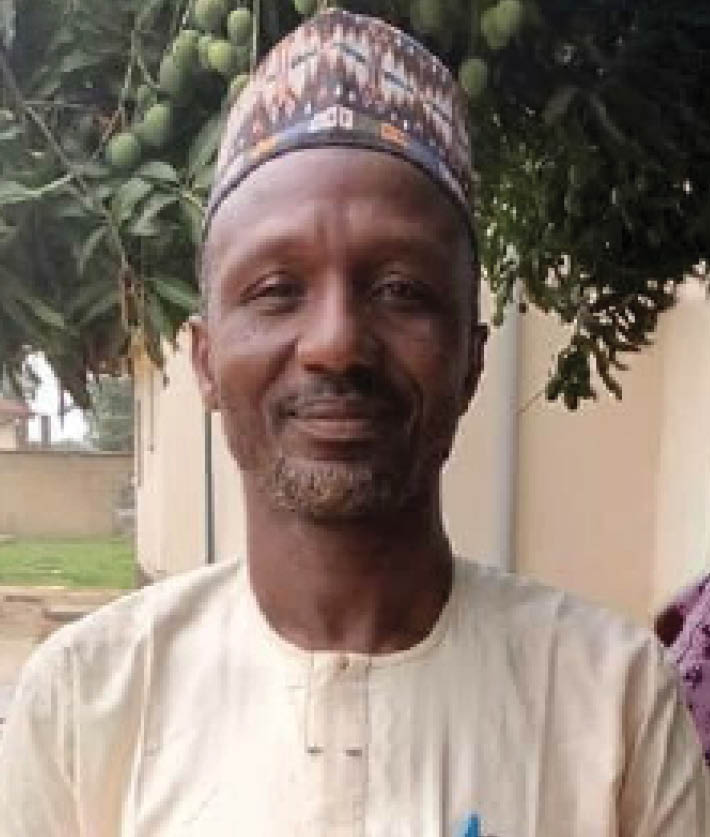Aminu Abdullahi Muhammad is a teacher, school proprietor and a writer. He is the author of several poetry collections, and his latest work is ‘Gates of Wisdom’. In this interview, he explains how his passion to see an end to Jos crisis and the killings propelled his writing career. He speaks on other issues relating to poetry writing and appreciation.
How did your writing career begin?
My writing career started due to my concern about the loss of lives in Jos and environs as a result of the ethno-religious crisis that started in the year 2001. I was poised to make an effort that could put a stop to the ceaseless killings and bring back peace that was trying to evade the city.
I then thought of different ways to achieve my goal, and so I came up with the idea of writing poems. I believed that the messages in poems can be composed and disseminated easily on a piece of paper.
AMML boardroom crisis: Court orders FCT Perm Sec, FCTA, AICL, others to maintain status quo
You can’t scrap Niger Delta ministry, PANDEF warns Tinubu
Tell us more about your book titled ‘Gates of Wisdom’
‘Gates of Wisdom’ is a collection of poems written with the sole intention of enlightening the public on the disadvantages of war and other social vices. I want people of my immediate community, Nigeria and the whole of Africa to understand and embrace peace as a tool for economic, political and social development. That is why the poem titled ‘Peace’ (in the collection) is personified and is the first poem in the book. In fact, the whole of the first part of the book (First Gate) is about peace.
I also understand that peace cannot be achieved if we fail to encourage learning and entrepreneurship. That is why the second part of the book (Second Gate) has poems like ‘Challenge’, ‘I am The Child’, ‘Miracle’ and ‘Time’.
Every country needs purposeful leadership and transparent leaders to develop. Hence, Gate of Transparent Tiles has poems like ‘Mr Corruption’, ‘Gruel’, ‘Boots’ and ‘The Sybarites’ for the politicians to ponder.
How relevant is your work to the academia?
‘Gates of Wisdom’ is a new book that focuses on peace, education, entrepreneurship, drug abuse and good governance. This is directly connected with our future leaders (youths), the Nigerian nation and Africa as a whole.
Hence, there is the need for the academia to comb through the work and make their contributions. They are at liberty to criticise, commend or recommend the book to the general public or educational authorities after their research.
I was in touch with many scholars who are still going through the book. I have also submitted it to some education ministries for possible inclusion into the curriculum.
Again, how does your work relate with your immediate community or society?
Literature in general is a reflection of the values, beliefs and culture of a given society. My work is to inspire, educate and at the same time change the unwholesome relationship of the past amongst the diverse groups in my community.
My work is out to bring about unity, respect for each other, interdependence and progress, as no meaningful progress can be achieved without bringing the youth into focus. My work paid great attention to that age group and how to inspire them. I want them to have the enthusiasm to excel in education, politics and on how to be self reliant.
Do you think having a book club/society can enhance writing and literary understanding?
Of course! Such a club or society can help upcoming writers to realise their dreams. It can serve as a discovery centre where talented writers can exhibit their talents.
Such a literary club can also help members to learn from each other and allow cross fertilization of positive ideas. It will as well encourage the reading culture. We all know that with the advent of social media, the culture of reading is declining daily.
Tell us about any club that you belong to or has established
I don’t belong to any as at now. This is due to the incessant clashes that occur in and around Jos at the time these clubs were in existence. The crisis polarized the city which made it difficult for a particular group to move freely into another.
I am, however, happy now that peace is gaining ground. People relate and respect each other now more than before. There is the growing desire by the populace to live in peace and harmony.
And why I haven’t established any is because it isn’t wise to establish a literary club or society in a homogeneous community. It is better to bring people of different tribes, religion and culture to foster unity, understanding and exchange of ideas.
With respect to the growing peace and harmony, one of these days it would be done.
How would you describe poetry understanding and appreciation in the larger society and country today?
Many things come into play before a person can understand and interpret poems. Many people that look at this genre of literature from a distance are scared and unable to depict the meaning within a short period of time.
It is easy for those who are conversant with the conventions of poetry writing to understand within a short period of time where the poet is coming from and where he is heading to. The form, style, literal, figurative or metaphorical meanings in the poem are important in trying to understand it.
The efforts of teachers and establishment of literary clubs can help improve the understanding and appreciation of poetry.
What’s the distinction between poetry written by young poets today and those written by renowned poets of old?
The main distinction is that poems (poetry) written by the young poets is flexible and written in a simple language. The poems of this time are less structured. Hence, blank verse and free verse are common in poems written by young poets.
We all know how the nature and principles of the writers of the traditional or poets of the old time are. They write poems that are well structured and formal.
What are the challenges facing poetry writing and publication today, and how can the problem be solved?
The challenges are not new. Every publishing house prefer to publish the work of a renowned writer. What they want is to sell books they published in multiple numbers. It is not about poetry only.
But, I do not consider struggling as a bad thing. The excitement associated with success is incomplete without the struggle. Many of the famous writers we celebrate today had to go through similar challenges. The stories of their struggles are sources of inspiration to many.
Yet, it is of importance for publishers to know the world cannot continue to live in the past. New kings lead new kingdoms. The work of new poets (writers) must be published before new talents can be discovered.
How would you describe your style of poetry?
I can’t place my style on only one form or style of poetry. I choose and make use of a particular style with respect to the type of message I want to convey and how I want to convey it.
Are there literally standard or best practices for poetry writing which poets must follow?
Every literary work must have intellectual value, it should also appeal to all regardless of race, culture or religion. It is also paramount for a work of art to have style, aesthetic and suggestiveness.
Do you have mentors or role models in Nigeria literary community?
Yes. My mentors are Chinua Achebe, Dr Abubakar Imam, Gabriel Okara, Wole Soyinka and Magaji A. Danbatta.
What is your advice to aspiring poets?
Every aspiring writer should endure to read first. Reading is an integral part of writing. It is a source of inspiration for anybody who aspires to write. It is also important for them join literary clubs so as to learn from each other and broaden their knowledge.

 Join Daily Trust WhatsApp Community For Quick Access To News and Happenings Around You.
Join Daily Trust WhatsApp Community For Quick Access To News and Happenings Around You.


